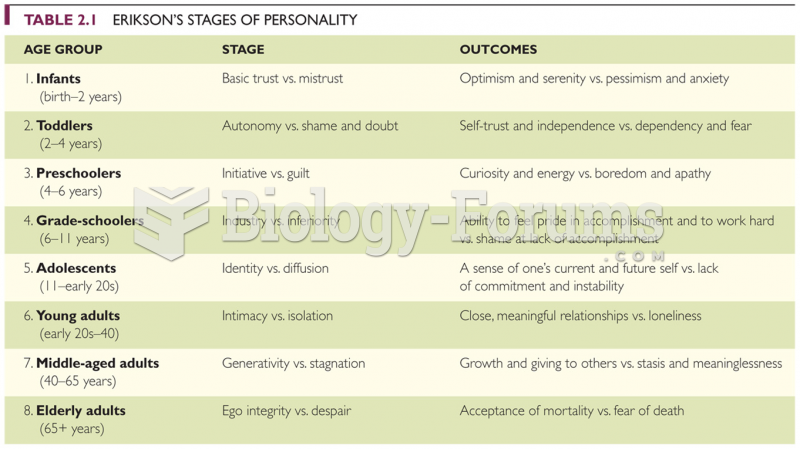|
|
|
Vaccines prevent between 2.5 and 4 million deaths every year.
Hyperthyroidism leads to an increased rate of metabolism and affects about 1% of women but only 0.1% of men. For most people, this increased metabolic rate causes the thyroid gland to become enlarged (known as a goiter).
More than nineteen million Americans carry the factor V gene that causes blood clots, pulmonary embolism, and heart disease.
The use of salicylates dates back 2,500 years to Hippocrates’s recommendation of willow bark (from which a salicylate is derived) as an aid to the pains of childbirth. However, overdosage of salicylates can harm body fluids, electrolytes, the CNS, the GI tract, the ears, the lungs, the blood, the liver, and the kidneys and cause coma or death.
For pediatric patients, intravenous fluids are the most commonly cited products involved in medication errors that are reported to the USP.







